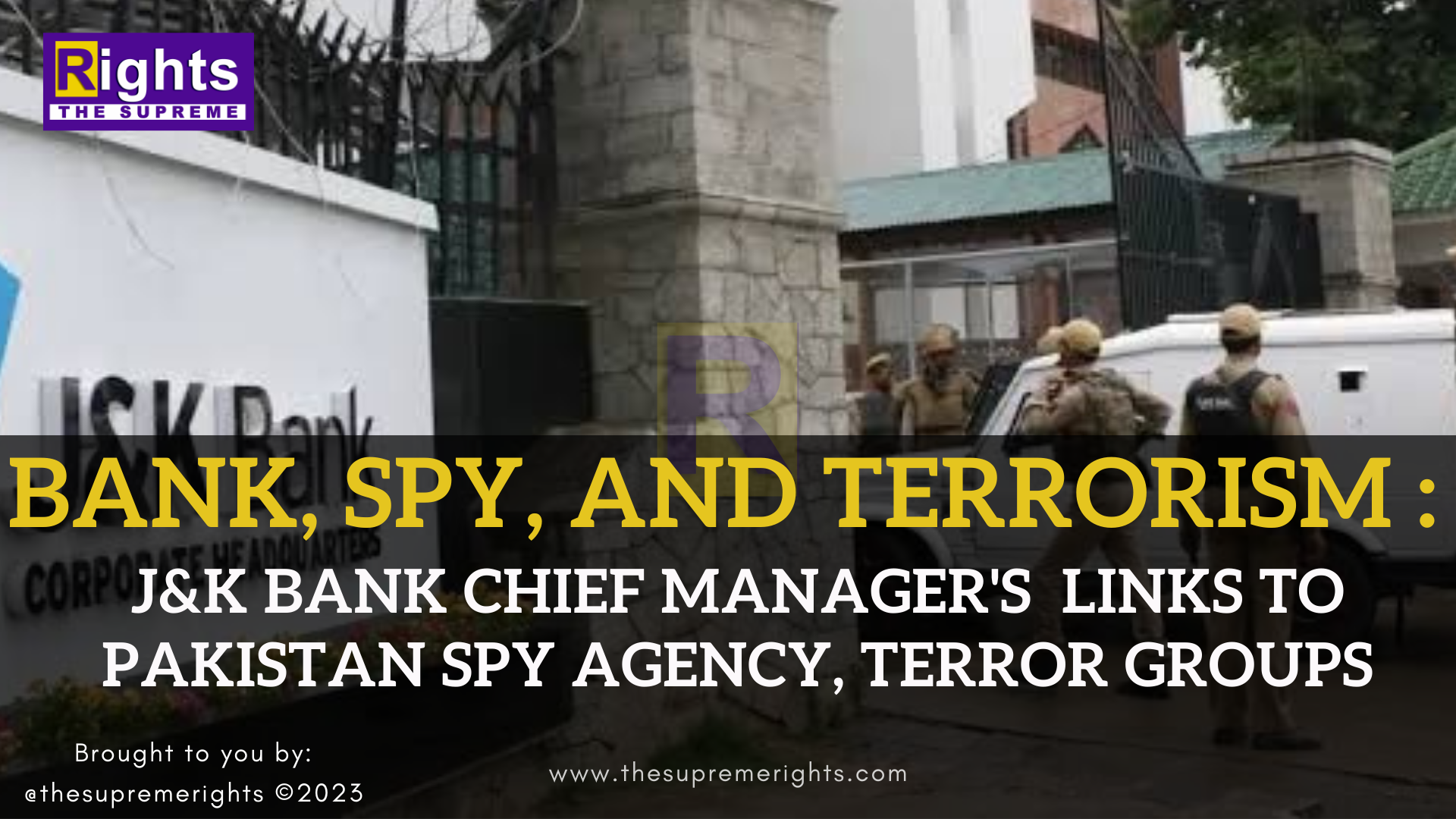
August 23, 2023
J&K Bank Chief Manager Sacked Over Links to Pakistan Spy Agency and Terror Outfits
In a startling development, the Jammu and Kashmir Bank (J&K Bank) has taken decisive action by sacking its Chief Manager, Sajad Ahmad. After investigations by the J&K criminal investigation department (CID) revealed that he had connections to Pakistan's spy agency, Inter-Services Intelligence (ISI) and other terror groups. The revelation underscores the complex security challenges that persist in the region and the critical need for alertness within financial institutions. This incident brings to the fore the multifaceted nature of security threats facing the region and the measures needed to counteract them effectively.
The Unveiling of Suspicious Ties:
The J&K Bank's decision to terminate its Chief Manager came after a thorough investigation revealed purported connections between the individual and Pakistan's intelligence agency. Furthermore, there were alleged ties to various terrorist organizations operating in the region. These revelations raise serious concerns about the infiltration of sensitive sectors by external entities that pose a direct threat to the security and stability of the region.
Implications for National Security:
The involvement of a high-ranking bank official with alleged links to both a foreign intelligence agency and terror groups highlights the vulnerability of critical institutions to covert manipulation. Such associations not only compromise the integrity of financial institutions but also have far-reaching implications for national security. Financial institutions play a pivotal role in facilitating economic stability and growth, making them potential targets for nefarious actors seeking to undermine a nation's security fabric. According to sources Sajad Ahmed was an embedded asset of the terrorist- separatist networks working on behalf of the ISI. He was planted in J&K Bank in 1990 by the ISI through Fayaz Kaloo, owner and the editor of Greater Kashmir, a local daily newspaper.
Challenges in Combating Espionage and Terrorism:
This incident underscores the formidable challenges security agencies face in detecting and countering espionage and terrorist activities. The complex and covert nature of such operations makes it imperative for institutions to strengthen their security protocols and enhance their screening mechanisms for personnel across all levels. Additionally, close collaboration between law enforcement agencies and intelligence organizations is vital to staying one step ahead of individuals attempting to infiltrate sensitive sectors.

The Role of Public Awareness:
The incident involving the J&K Bank also highlights the importance of raising public awareness regarding the potential threats posed by espionage and terrorism. Communities must be educated about the signs of potential infiltration and the significance of reporting suspicious activities. This collective vigilance can go a long way in thwarting attempts to compromise national security and disrupt the stability of the region.
Conclusion:
The recent sacking of the J&K Bank's Chief Manager over alleged connections to Pakistan's spy agency and terror groups serves as a stark reminder of the multifaceted security challenges facing the region. It emphasizes the need for robust security measures within critical institutions and underscores the importance of proactive collaboration between various security agencies. As nations continue to grapple with evolving security threats, maintaining a vigilant and informed public remains crucial to safeguarding national interests and maintaining stability.
FOLLOW US ON INSTAGRAM: @thesupremerights
OUR WEBSITE: www.thesupremerights.com

